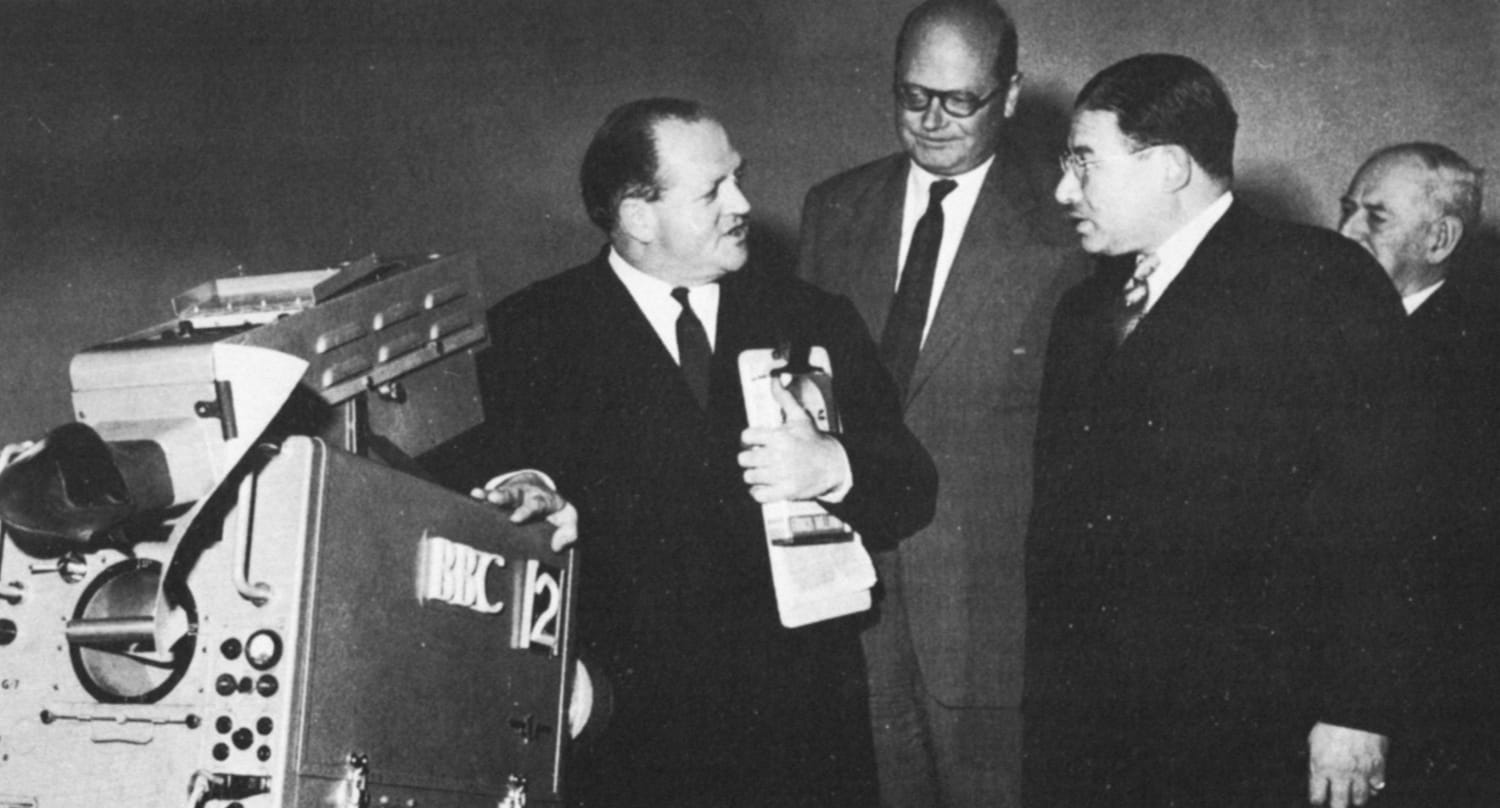In many fields Richard Dimbleby was our first as well as our foremost broadcaster. He was the first BBC news observer, the first man to take a microphone to a civil war, the first to report a Royal Tour by radio, the first BBC war correspondent, the first witness to reveal the horrors of Belsen concentration camp. He was one of the first from the West, and certainly the first war correspondent, to enter defeated Berlin.
He was the commentator for the first time television cameras were allowed at a Coronation, and at a State Opening of Parliament. He was the anchorman for our first weekly television current affairs programme.
He was there on each occasion when television pushed forward its physical frontiers: the first live relay across the Channel in 1950; through the Iron Curtain in 1961; over the Atlantic via Telstar in 1962; and round the world from Japan in 1964.
He held first place in persuading viewers to give, and give quickly, to relieve some natural disaster (his two appeals for the victims of earthquakes in Persia and Yugoslavia brought in over £800,000).
He was first in stamina in General Election Results programmes and perhaps his ‘finest hour’ was his description of the funeral of the man whose phrase that was.
But for us at the BBC he was above all a patient, gentle, courteous, confident, compassionate, loyal, and brave friend.
Richard was a great broadcaster; but great broadcasts are ephemeral. They are enjoyed and, sooner or later, forgotten. This book is offered to recall some of the thousands of broadcasts he made for the BBC and to show what it was like to work in broadcasting with him.

